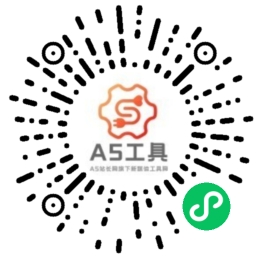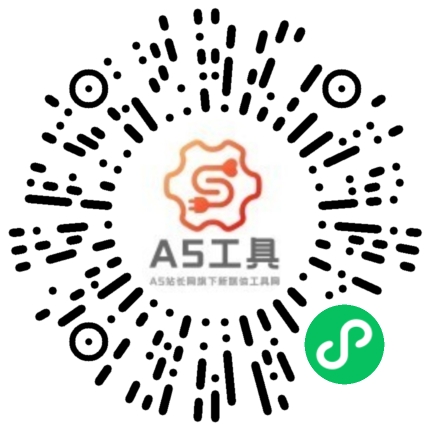声音克隆:数字模仿新纪元,挑战身份与沟通的本质
2025-02-06 12:38
**Voice Cloning: The Dawn of Digital Mimicry**
In an era where technology transcends traditional boundaries, the concept of voice cloning has emerged as a captivating frontier, raising questions about identity, authenticity, and the very essence of human communication. But how do we translate this intriguing phenomenon into the language of innovation—English? Let's delve into the fascinating world of voice cloning and explore its implications in a fresh, contemporary narrative.
Voice cloning, or as it's elegantly termed in tech circles, "vocal mimicry technology," involves the replication of an individual's voice using sophisticated algorithms and artificial intelligence. Imagine being able to create a digital facsimile of your voice, one that could read aloud your emails, narrate your audiobooks, or even engage in conversations on your behalf. This isn't science fiction; it's a rapidly evolving reality.
Consider the stats: recent advancements in deep learning and neural networks have made voice cloning more accurate and accessible than ever before. Studies show that with just a few minutes of audio, AI models can synthesize a convincing replication of a person's voice. This isn't merely an impressionist's trick; it's a technological marvel that could revolutionize fields ranging from entertainment to customer service.
But why should we care? The applications are myriad and intriguing. For the entertainment industry, voice clones could breathe new life into deceased actors, allowing their voices to continue narrating stories or lending authenticity to animated characters. In customer service, AI-driven voice clones could personalize interactions, making automated systems feel more human and responsive.
However, this technological wonder also poses ethical dilemmas. Should we be concerned about the misuse of voice clones for impersonation or fraud? How do we protect the unique identity tied to one's voice? These are pressing questions that demand our attention as we navigate the uncharted waters of vocal mimicry.
Moreover, the evolution of voice cloning challenges our understanding of authenticity. As AI-generated voices become indistinguishable from the real thing, what does it mean to be "authentic" in a world where replication is seamless? Do we risk losing something intrinsic to human communication as we embrace these digital facsimiles?
As we stand at the cusp of this technological revolution, it's crucial to engage in thoughtful dialogue. How should we regulate the use of voice cloning? How can we ensure that this technology serves to enhance rather than detract from human interaction? Your thoughts and perspectives are vital in shaping the future of this fascinating field.
Voice cloning, or vocal mimicry technology, represents a bold leap forward in our quest to digitize and replicate human experiences. It's a journey filled with promise and peril, one that invites us to ponder the essence of identity and communication in an increasingly synthetic world. As we embark on this odyssey, let's strive to harness the power of voice cloning for the greater good, ensuring that it enriches rather than diminishes the tapestry of human connection.
In an era where technology transcends traditional boundaries, the concept of voice cloning has emerged as a captivating frontier, raising questions about identity, authenticity, and the very essence of human communication. But how do we translate this intriguing phenomenon into the language of innovation—English? Let's delve into the fascinating world of voice cloning and explore its implications in a fresh, contemporary narrative.
Voice cloning, or as it's elegantly termed in tech circles, "vocal mimicry technology," involves the replication of an individual's voice using sophisticated algorithms and artificial intelligence. Imagine being able to create a digital facsimile of your voice, one that could read aloud your emails, narrate your audiobooks, or even engage in conversations on your behalf. This isn't science fiction; it's a rapidly evolving reality.
Consider the stats: recent advancements in deep learning and neural networks have made voice cloning more accurate and accessible than ever before. Studies show that with just a few minutes of audio, AI models can synthesize a convincing replication of a person's voice. This isn't merely an impressionist's trick; it's a technological marvel that could revolutionize fields ranging from entertainment to customer service.
But why should we care? The applications are myriad and intriguing. For the entertainment industry, voice clones could breathe new life into deceased actors, allowing their voices to continue narrating stories or lending authenticity to animated characters. In customer service, AI-driven voice clones could personalize interactions, making automated systems feel more human and responsive.
However, this technological wonder also poses ethical dilemmas. Should we be concerned about the misuse of voice clones for impersonation or fraud? How do we protect the unique identity tied to one's voice? These are pressing questions that demand our attention as we navigate the uncharted waters of vocal mimicry.
Moreover, the evolution of voice cloning challenges our understanding of authenticity. As AI-generated voices become indistinguishable from the real thing, what does it mean to be "authentic" in a world where replication is seamless? Do we risk losing something intrinsic to human communication as we embrace these digital facsimiles?
As we stand at the cusp of this technological revolution, it's crucial to engage in thoughtful dialogue. How should we regulate the use of voice cloning? How can we ensure that this technology serves to enhance rather than detract from human interaction? Your thoughts and perspectives are vital in shaping the future of this fascinating field.
Voice cloning, or vocal mimicry technology, represents a bold leap forward in our quest to digitize and replicate human experiences. It's a journey filled with promise and peril, one that invites us to ponder the essence of identity and communication in an increasingly synthetic world. As we embark on this odyssey, let's strive to harness the power of voice cloning for the greater good, ensuring that it enriches rather than diminishes the tapestry of human connection.
这篇关于《声音克隆:数字模仿新纪元,挑战身份与沟通的本质》的文章就介绍到这了,更多新媒体运营相关内容请浏览A5工具以前的文章或继续浏览下面的相关文章,望大家以后多多支持A5工具 - 全媒体工具网!
相关资讯
查看更多
克隆声音技术:未来已来,你准备好迎接声音革命了吗?
**克隆声音:未来已至,你准备好了吗?**
在这个日新月异的科技时代,每一项新技术的诞生都仿佛在向我们宣告着未来的无限可能。今天,我们要探讨的,正是一个听起来仿佛只存在于科幻小说中的概念——克隆声音...

AI克隆声音遇冷背后:技术革新、伦理挑战与未来展望
**AI克隆声音怎么没了?技术革新背后的探索与反思**
在科技日新月异的今天,AI克隆声音技术曾如一颗璀璨的新星,吸引了无数人的目光。它不仅能够模仿人类语音模式,还能产生令人惊叹的合成声音,为教育、...

微信声音克隆来袭,探索未来沟通新方式,你准备好了吗?
**微信声音也能克隆?探索声音复制的新奇世界**
在这个日新月异的数字时代,技术的每一次飞跃都让人惊叹不已。你是否曾幻想过,有一天能够克隆自己的声音,用它来发送微信语音,让远方的朋友仿佛听到你就在耳...

声音克隆:开启声音经济新纪元,你准备好抓住变现机遇了吗?
**声音克隆:解锁变现新纪元,你准备好了吗?**
在科技日新月异的今天,声音克隆技术已从科幻电影中的桥段跃然成为现实。这一突破性进展不仅挑战了我们对声音认知的边界,更悄然开启了一个全新的商业变现蓝海...

克隆声音:解锁声音新纪元,让声音穿越时空,创造无限可能
**克隆声音:解锁声音的无限可能**
在科技日新月异的今天,我们似乎总能见证一个又一个不可思议的奇迹。你是否曾幻想过,有一天能拥有和偶像一模一样的声音,或是让自己的声音穿越时空,永远留存?克隆声音,...

声音克隆技术大揭秘:一键克隆刘莹之声,开启科技奇幻之旅!
**如何克隆刘莹的声音:一场声音科技的奇幻之旅**
在科技日新月异的今天,你是否曾幻想过能够克隆某个人的声音,就像电影中的科幻场景一样?如果答案是肯定的,那么今天,我们就来探讨一个既前沿又充满趣味的...

声音克隆:复制声音奇迹,开启未来世界的声音“变形记”
**如何克隆视频中的声音:一场声音复制的奇妙之旅**
在数字时代,技术的飞速发展让我们见证了无数曾经只存在于科幻电影中的奇迹。今天,我们要探讨的,正是一项令人兴奋的新技术——克隆视频中的声音。你是否...

数字克隆声音:精准调校,让虚拟之声重焕真实情感魅力!
**数字克隆声音:如何精准调校,让虚拟之声焕发真实魅力?**
在科技日新月异的今天,数字克隆声音技术正悄然改变着我们对声音的认知与体验。想象一下,一个与已故歌手嗓音一模一样的虚拟形象站在舞台上,深情...





